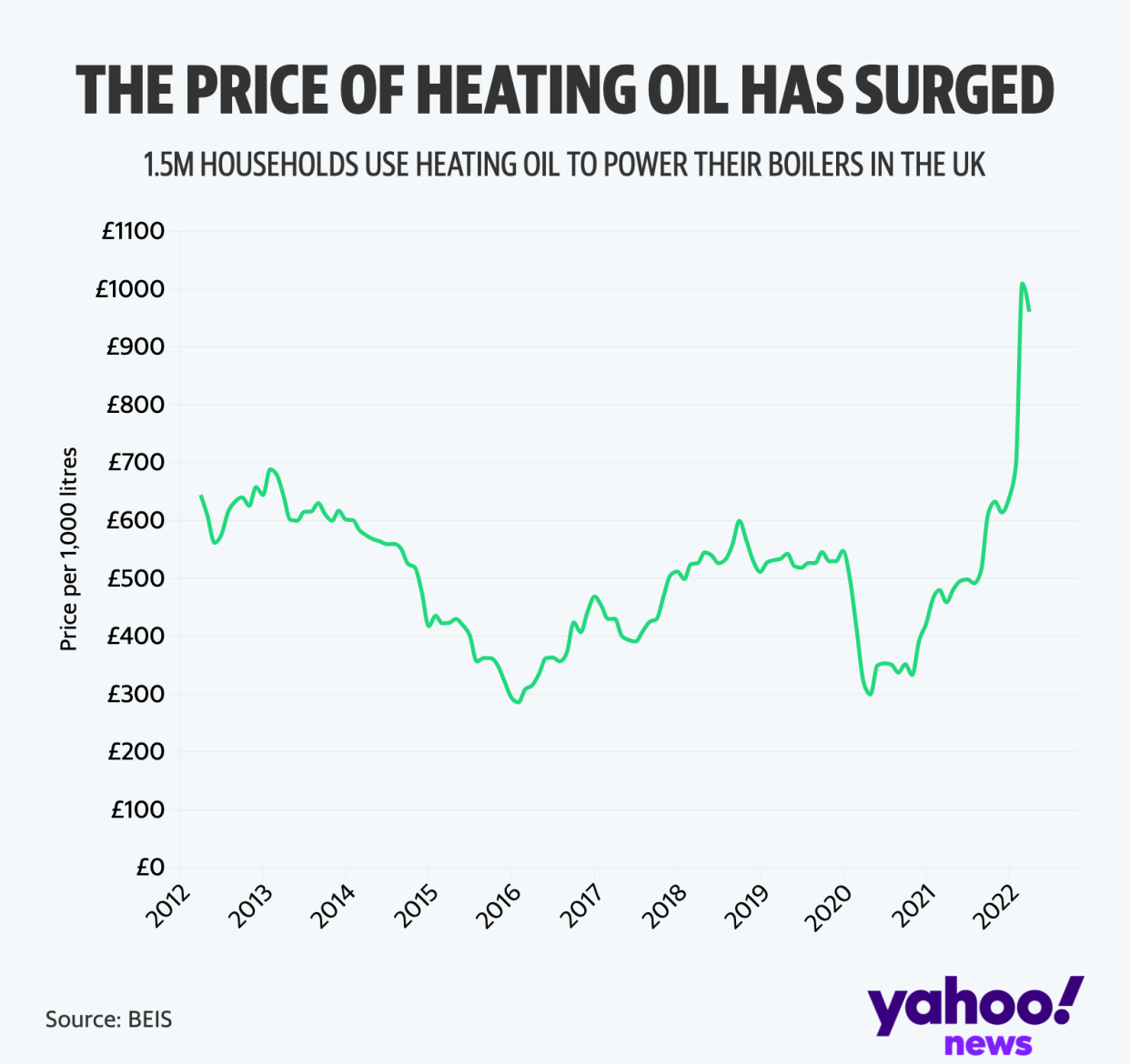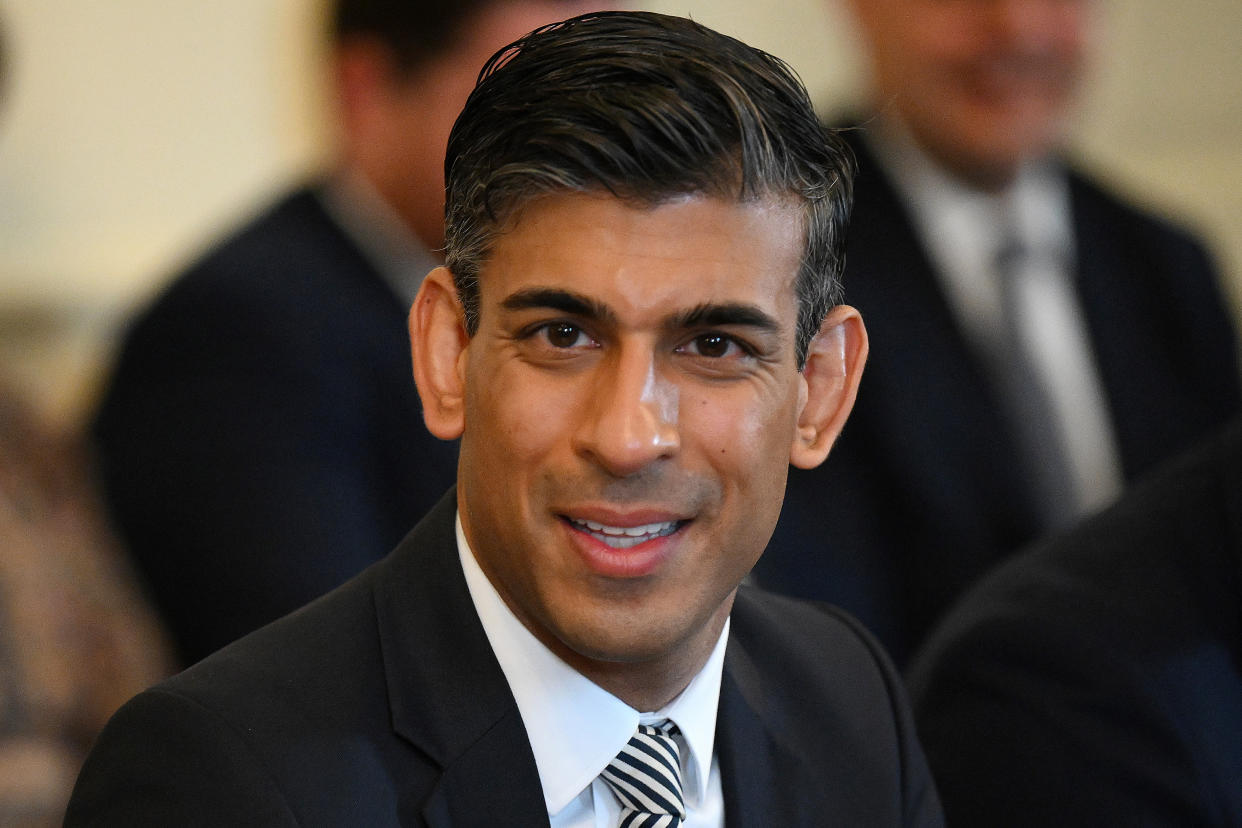Heating oil: Why 1.5 million households are facing huge increases in their energy bills

Over a million households in the UK face even sharper energy bills increase than most this winter as the cost of heating oil continues to soar.
Around 1.5 million households in the UK are not connected to the gas grid and use heating oil to heat their homes.
Households that use heating oil tend to be in rural communities and they order bulk amounts of oil to store at their home.
The prices for 1,000 litres of oil has more than doubled in a year from £458.81 in April 2021 to £960.77 in April 2022. In the summer of 2020 it hit a low of £250 for 1,000 litres.
Read more: Energy rebate scam: Warning as public targeted with fake Ofgem emails

Read more: Windfall tax: What is the policy announced by Rishi Sunak?
Unlike gas, heating oil is not covered by the energy price cap so the price of it can rise daily and be hard to budget for.
The oil, which is usually kerosene, is also less efficient for heating homes than gas.
Many energy firms advise stocking up in summer to ensure they have enough for winter when prices are usually higher.
But with summer just around the corner and prices at a record high many do not know what to do.
The average purchase is also around 500 litres, which requires a considerable amount of storage space in itself, so expanding that may be impractical for many.

Why is the price going up so much?
The price of heating oil is linked to the price of crude oil, which has risen sharply since the start of the war in Ukraine.
Russia is the second-largest exporter of crude oil in the world and has been subjected to trade sanctions restricting many nations' ability to buy their oil.
The UK has said it will phase out Russian oil imports by the end of this year.
This insecurity in the markets has sent the price of oil soaring, with the price in November at around $70 a barrel.
But prices have risen ever since as tensions escalated and then turned into all-out war and now sit $114 a barrel.
What have politicians said?
Chancellor Rishi Sunak announced billions of pounds worth of support for energy bills on Thursday.
But this was targeted at monthly bill payers and it was not immediately clear if people who buy heating oil will qualify, although it is expected people off the gas grid will be able to access at least some of the support.

The Chancellor did not mention heating oil in his statement.
Labour has campaigned for more to be done for rural communities and said heating oil should be subjected to the price cap.
Plaid Cymru MP Ben Lake called for more support for his mostly rural Ceredigion constituency during the Queen's speech debate last week.
He said rural communities are being hit particularly hard by the cost of living crisis.
He said people in his constituency pay on average around 50% more for gas than people in London, but with 35% of households in Ceredigion off the gas grid they face even higher charges.
He said: "They rely on heating oil, and on average have seen a 150 per cent increase to the cost of their fuel deliveries, as they are not protected by the energy price cap.
"However, rising energy prices not only squeeze household budgets, but also threaten the rural economy and risk stoking a wider social crisis."


